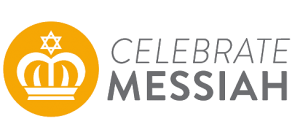 https://www.celebratemessiah.com.au/wp-content/uploads/2010/06/bible-1869164_1280.jpg
853
1280
Web Master
https://www.celebratemessiah.com.au/wp-content/uploads/2023/05/CM-Transparent-Logo-2-300x138-2.png
Web Master2010-06-18 21:43:022017-05-09 12:38:18Fathers in the Bible
https://www.celebratemessiah.com.au/wp-content/uploads/2010/06/bible-1869164_1280.jpg
853
1280
Web Master
https://www.celebratemessiah.com.au/wp-content/uploads/2023/05/CM-Transparent-Logo-2-300x138-2.png
Web Master2010-06-18 21:43:022017-05-09 12:38:18Fathers in the BibleDear friend,
Shalom from New York City! We enjoyed a fruitful season of ministry this summer. By God’s amazing grace, you helped purchase a new building in Brooklyn (we’ll tell you more about our renovation progress soon), conducted major outreaches in Israel and New York City and held a children’s camp on the West Coast.
We also began our Isaiah 53 Evangelistic Campaign, and the first phase in New York City is now complete—except for the ongoing follow up with seekers! Please keep praying for the hundreds of Jewish people who are now reading the book Isaiah 53 Explained and whom our local staff members are visiting.
The High Holidays are Approaching
We are on the cusp of the High Holidays, which include the Jewish New Year (Rosh Hashanah), the Day of Atonement (Yom Kippur) and the Festival of Tabernacles (Sukkot). Your Chosen People staff across the globe is especially busy during this season, as we are conducting services and doing all we can to help our Jewish people see that Jesus is the One who fulfills each of these great biblical festivals.
The focus of the High Holidays is on atonement and the forgiveness of sin. This is the very theme we emphasized during our Isaiah 53 Campaign! Isaiah 53 was written more than 700 years before Jesus and is the clearest prophecy in the Old Testament of the atoning death and resurrection of the Messiah.
This is not easily communicated to today’s average Jewish person, who is often secular and unfamiliar with the Bible! Religious Jewish people have developed extensive arguments about why Isaiah 53 does not point to Jesus, but these objections are easier to address by examining the Scriptures, which are viewed as authoritative by both devout Jews and Christians.
As I wrote the evangelistic book we are using for our campaign, Isaiah 53 Explained, I wrestled with how to communicate the life-changing biblical truths of salvation and forgiveness through the sacrifice of our Messiah Jesus. I believe the Lord led me, and the book does speak to the heart of today’s average Jewish person.
It would be my great joy to send a free copy of this 165-page book to one or more of your Jewish friends! You can refer them to our website where they can order it: www.Isaiah53.com.
I would like to share an abbreviated portion of the book that is especially well suited to this time of the year when Jewish people—even the most secular—are observing the Day of Atonement. This adapted portion is from the chapter entitled “Isaiah 53 and Atonement.” I hope that by reading it, you will be blessed and have a better understanding of the way in which we are communicating these eternal truths to our Jewish people.
As you read, please remember that we have written this for the modern Jewish reader who is not yet a believer in Jesus:
————————————————————————
Chapter 7: Isaiah 53 and Atonement
Introduction
The idea of atonement is one of the most difficult in the Bible to explain; however, it is also one of the most important of all spiritual truths. It would be impossible to grasp the meaning of Isaiah 53 without examining the meaning of atonement.
Surveys of the modern Jewish community indicate that most Jewish people do something to acknowledge the Day of Atonement—Yom Kippur. But do we really understand what this means? We know it involves forgiving others and being forgiven by God (the one day a year we believe in God—with or without evidence!), but most people would have a difficult time defining and explaining the idea of atonement.
Both Judaism and Christianity hold this important teaching in common and both faiths are built on this concept, so it is very important for us to understand it! The idea that the Servant dies for our sins cannot be understood without grasping what the Bible teaches about atonement.
Atonement, especially substitutionary atonement, is understandably difficult for the modern mind to grasp, as it is founded upon certain presuppositions that are not widely accepted today.
The Presuppositions of Atonement
The first idea essential to the concept of atonement is that there is a personal God who made us, loves us, desires to have a relationship with us and who also holds us accountable for our actions. This personal God is holy and righteous and created beauty, love and all the things we enjoy in this life. He gave us parameters for our behavior so that we do not misuse all the blessings He has given us. But for some reason, no moralist or philosopher has been able adequately to explain why we continually stray from the divine guidelines found in the Bible. Ignoring these guidelines is called sin.
The second presupposition foundational to understanding atonement is that people find it difficult—even impossible—to meet God’s standards. The Bible describes this “missing the mark” as sin, and claims that sin is endemic to the human condition—no one is perfect. If sin were not universal, then atonement would be optional or only the worst among us would need it. Rather, according to the Bible and also the Jewish religion, we all need atonement!
There are a variety of ways to look for atonement. Some of us try to find atonement through seeking or earning the forgiveness of others. There’s nothing wrong with making amends, and as Jews we know that at least once a year this is a major personal project! But making amends is different from receiving atonement.
We might try to earn atonement by personal sacrifice: volunteering or giving money to philanthropy. These efforts have great merit, but once we stop doing them, our sense of peace wanes, so that we live on a perpetual treadmill, seeking atonement generated by our own efforts. We innately know we need to make atonement for the wrongs we have done, but it is in trying that we experience our deepest sense of failure.
Atonement—removing the alienation and guilt that keep us from a close personal relationship with our Creator—only comes about when the problem of sin is removed. From the Bible’s point of view, no one among us is capable of achieving the depth of repentance that would enable us to meet God’s holy standards.
Once we accept the presupposition that there is a personal God, and that we fail to meet His standards, we then come to a third presupposition: atonement begins and ends with God’s efforts, and our responsibility is simply to accept what God has accomplished on our behalf. In other words, atonement from the Bible’s perspective is an unmerited and unearned gift.
This is the context for under-standing what the Servant described in Isaiah 53 did for you and me. The chapter predicts that God would send His innocent Servant to die in our place and pay the penalty of death, which we deserved. And through his death and resurrection, God’s wrath and judgment for our sin would be removed!
Conclusion
Only through accepting God’s atonement will we experience peace in our relationship with our Creator— a peace that will enable us to face life and even death with a confidence that comes from an intimate relationship with the God who made us.
The choice is yours!
————————————————————————
Happy High Holidays
I hope you will enjoy the rest of the newsletter, especially the featured article by Rachel G., one of our Israel staff members, on how the High Holidays are celebrated in Israel today.
Please remember to request a free copy of Isaiah 53 Explained for your Jewish friends, associates or family members. Also, our beautiful Messianic Jewish Art Calendar for 2010-2011 is available now, and it is simply spectacular… you will love the artist’s vivid photographs of Jewish life!
As always, we could not reach our Jewish people without your faithful support and prayers! Thank you!
May the One who made a way to heaven for you and me be your greatest joy!
Your brother,
Mitch





